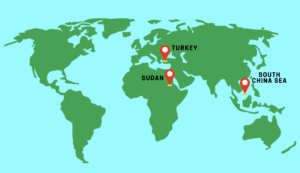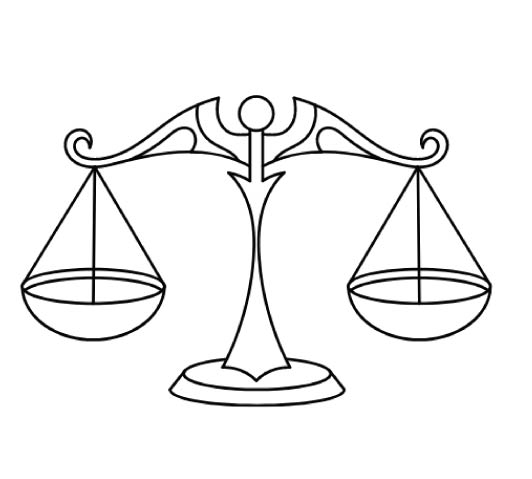Colorado Mesa University (CMU) has a diverse population of students from all around the world. It is crucial to foster a global perspective and remain informed about current events as students embark on their educational journey. One way to do this is to learn about conflicts happening in other countries.
One of the primary reasons CMU students should be engaged in international conflicts is to promote global citizenship. Understanding and caring about events occurring beyond national borders is essential to becoming well-rounded, informed and empathetic individuals. This perspective can lead to a greater sense of responsibility for the world beyond our immediate surroundings.
Caring about current events in other countries showcases solidarity with those affected by these conflicts. It sends a message that people at CMU and across the United States (US) empathize with the suffering and challenges faced by individuals and communities in places like Turkey, Sudan and even conflicts that affect us more directly, like the issues in the South China Sea. This solidarity can foster connections with people from diverse backgrounds and promote peace-building efforts.
The consequences of conflicts abroad can ripple across borders and impact the global community in today’s interconnected world. Economic repercussions, refugee crises and security concerns are just a few examples of how distant conflicts can affect the lives of people everywhere. Understanding these connections is essential for making informed decisions and promoting international cooperation.
To get students started on their journey of caring about international matters, here are a few conflicts that are currently ongoing. As you read about them, remember you can help despite being so far away. Non-profits often fundraise for humanitarian efforts and spreading awareness may encourage others to help as well.
Turkey is facing complex challenges with the Kurdistan Worker’s Party (PKK). The group started a rebellion in 1984 against the Turkish government and the conflict is ongoing. Around 40,000 people have been killed.
One of the PKK’s goals is to create their own territory, which they have done in a small part of Syria. The main reason for their uprising is to dismantle the Islamic State and they have carried out attacks in Turkey, Syria and Iraq in an attempt to do so.
The US has been involved in the conflict and designated the PKK as a terrorist organization. Our government has partnered with Turkish and Syrian forces and provided aid to the countries as well as arms. Though we pulled out of Syria in 2018, the US military still backs Turkey.
Another country that has experienced instability is Sudan. Omar al-Bashir first gained power in 1989 by overthrowing the elected government. He then led the Sudanese government under various titles until April 2023 when he lost control due to an insurgency.
The most recent coup was the result of decades-long tensions on top of an economic collapse in 2018 and the protests that followed. However, this did not solve Sudan’s problems. The violent means the new government used brought backlash and the council of generals that took over still do not have complete control of the region.
There have still been protests from the Sudanese Professionals Association, which is composed of health workers, doctors and lawyers. At the front of the protests, there have been many young people and a large number of women.
On Aug. 4 of this year, the protesters and the new government did come to a power-sharing agreement, which will help stabilize the country. This does not mean that the conflict is over, but the first steps toward peace have been taken.
The South China Sea dispute involves several countries and has the potential to disrupt global trade and security. China began a mission to gain territorial control in the South China Sea in 2009. Countries such as the US have been against this because trade could be limited and they would lose freedom of navigation in the Indo-Pacific region.
There has not been a military conflict, but the tensions have been steadily rising and there is potential for a blowup. The Philippines is one of the contested territories and the US has defense obligations due to a treaty. Even though the areas are disputed, China sees them as part of their nation.
China is facing internal challenges with Hong Kong and Taiwan, which could push them into advancing their control tactics to gain power back. The US will have to protect its interests and allies in the South China Sea at that point and the conflict could escalate very quickly. For now, each country involved is carefully watching for what will come next.
These conflicts have much more to them than these brief descriptions, which is why it is important to do your own research. Some good sources are Al Jazeera, Reuters, Council on Foreign Relations and Foreign Affairs.
CMU students can engage with these issues by learning about their historical context, their impact on regional politics and the importance of international diplomacy. CMU students have the opportunity to cultivate a global perspective by paying attention to and caring about current events around the world. By staying informed and engaged, students can become responsible global citizens who are better equipped to address the complex challenges facing our planet.









